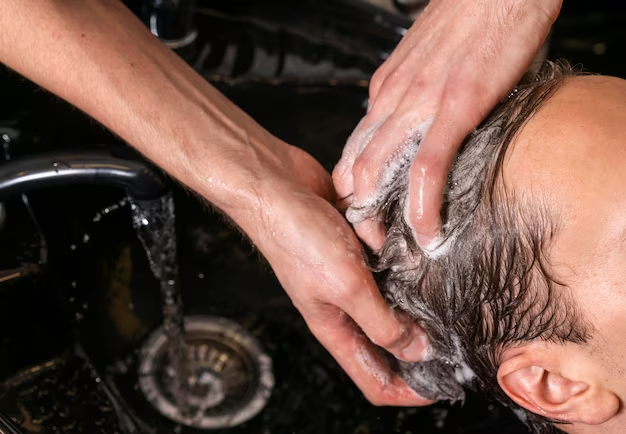Hair care is an essential part of grooming for both men and women, and South African men are no exception. However, men often face unique challenges when it comes to maintaining healthy and stylish hair. From dealing with different hair textures to combating specific hair issues, understanding how to cope with these challenges is crucial for achieving optimal hair health. In this guide, we will explore some common hair care challenges faced by South African men and provide tips on how to overcome them.
- Managing Different Hair Textures: South Africa is a diverse country with a rich blend of ethnicities, resulting in a wide range of hair textures among its male population. From tightly coiled afro-textured hair to straight or wavy hair, each hair type requires specific care. Understanding your hair texture is the first step in managing it effectively. Research online or consult with a professional stylist to determine the best hair care practices, products, and hairstyles that suit your hair type.
- Dealing with Dryness and Breakage: Dryness and breakage are common issues among South African men, particularly those with coarse or curly hair. The country’s climate, especially in drier regions, can contribute to moisture loss and brittleness. To combat this, it’s important to incorporate regular moisturizing and conditioning routines into your hair care regimen. Use a hydrating shampoo and conditioner specifically formulated for your hair type, and consider incorporating natural oils, such as coconut oil or shea butter, to lock in moisture. Deep conditioning treatments once or twice a month can also help restore vitality to dry and damaged hair.
- Maintaining a Healthy Scalp: A healthy scalp is the foundation for healthy hair growth. South African men may face challenges like dandruff, dry scalp, or even more severe conditions like alopecia. To maintain a healthy scalp, it is essential to keep it clean and well-nourished. Use a gentle shampoo to cleanse your scalp regularly, avoiding harsh ingredients that can strip away natural oils. Exfoliating your scalp with a soft brush or a scalp scrub can help remove dead skin cells and promote circulation. Additionally, adopting a balanced diet rich in vitamins and minerals, such as biotin, zinc, and vitamin E, can support overall scalp health.
- Styling and Grooming Techniques: Styling and grooming play a significant role in men’s hair care routines. South African men often embrace a variety of hairstyles, from short fades to longer dreadlocks or braids. However, excessive manipulation or improper styling techniques can lead to hair damage. When using heat styling tools, like hairdryers or straighteners, always apply a heat protectant to minimize the risk of heat-related damage. Avoid tight hairstyles that pull on the hairline, as this can cause traction alopecia, a type of hair loss. Opt for looser styles and give your hair regular breaks from tight hairstyles to promote healthy hair growth.
- Seeking Professional Help: If you’re struggling with specific hair care challenges or experiencing persistent hair issues, don’t hesitate to seek professional help. Trained hairstylists and trichologists can provide personalized advice, diagnose underlying conditions, and recommend suitable treatments or products tailored to your needs. They can also guide you on the best practices for your hair type and offer valuable tips for maintaining optimal hair health.
In conclusion, South African men face unique hair care challenges due to diverse hair textures, climate, and styling preferences. By understanding your hair type, implementing effective moisture and conditioning routines, maintaining a healthy scalp, using proper styling techniques, and seeking professional guidance when needed, you can overcome these challenges and achieve healthy, stylish hair. Remember, investing time and effort into your hair care routine is an investment in your overall well-being and self-confidence.










